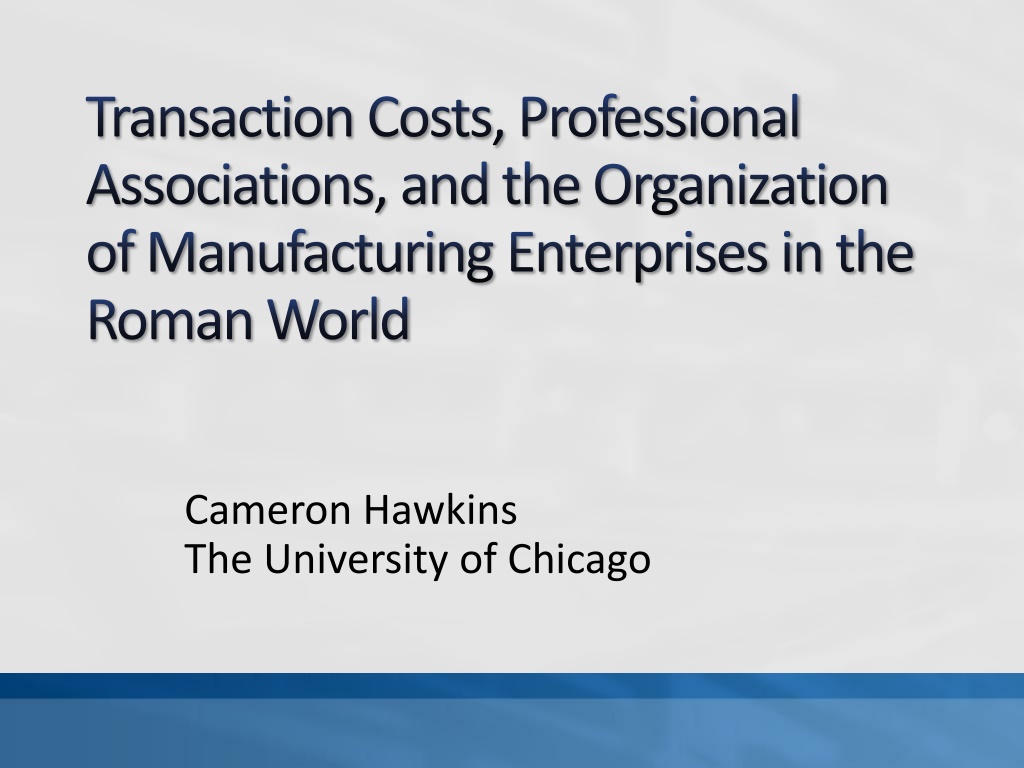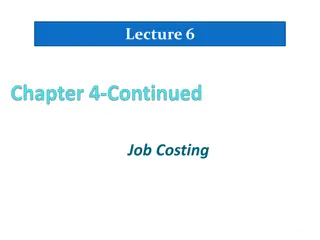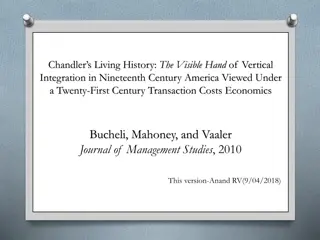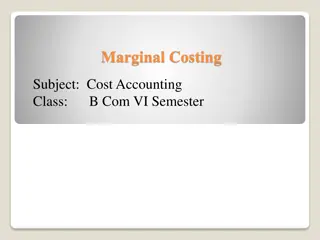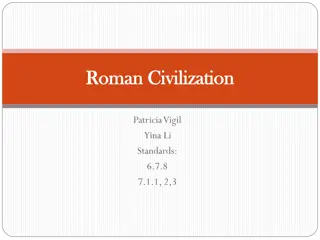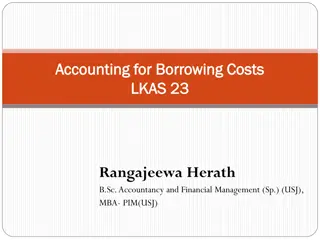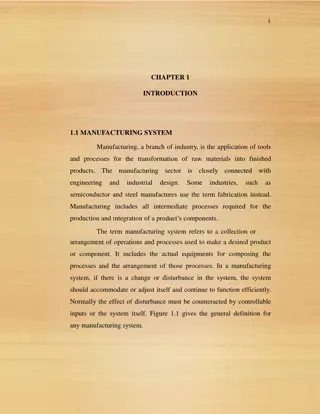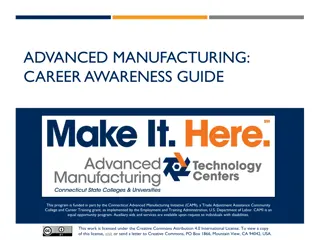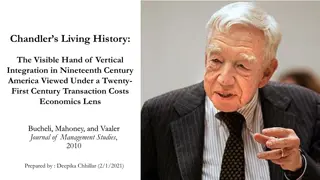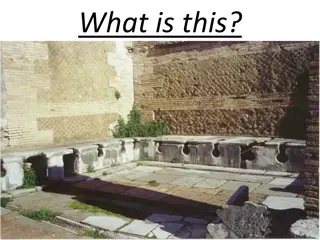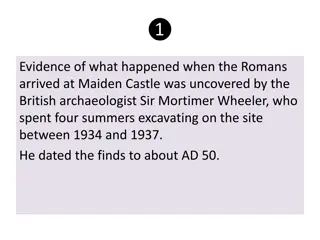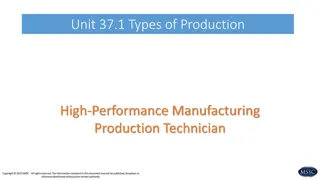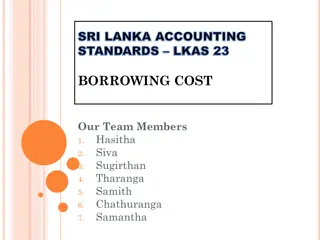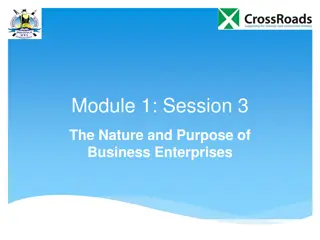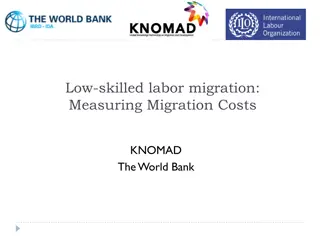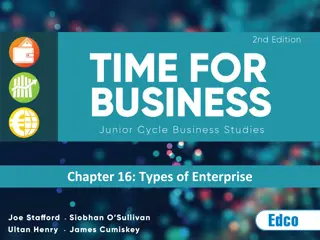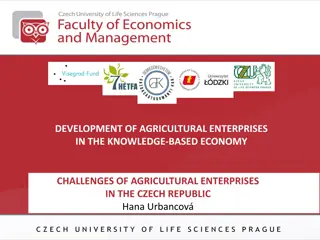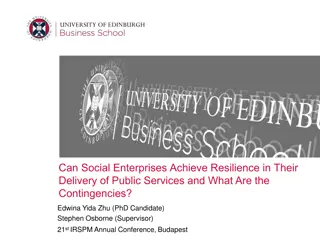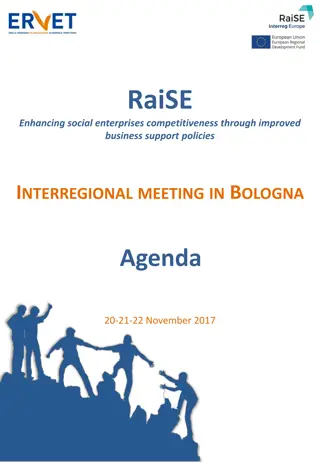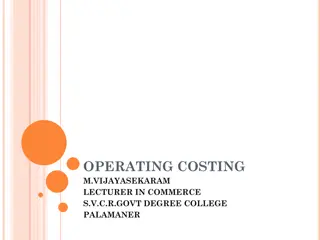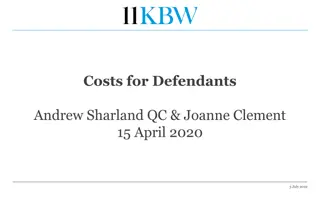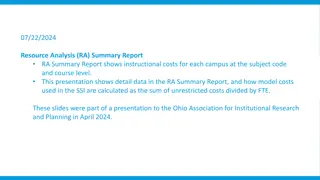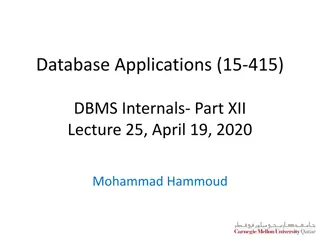Manufacturing Enterprises in the Roman World: Insights into Transaction Costs and Organizational Structure
Explore the role of professional associations, transaction costs, and subcontracting networks in manufacturing enterprises of ancient Rome through historical excerpts and insights from craftsmen, senators, and specialists in metalworking trades.
- Roman World
- Manufacturing Enterprises
- Transaction Costs
- Organizational Structure
- Professional Associations
Download Presentation

Please find below an Image/Link to download the presentation.
The content on the website is provided AS IS for your information and personal use only. It may not be sold, licensed, or shared on other websites without obtaining consent from the author. Download presentation by click this link. If you encounter any issues during the download, it is possible that the publisher has removed the file from their server.
E N D
Presentation Transcript
Transaction Costs, Professional Associations, and the Organization of Manufacturing Enterprises in the Roman World Cameron Hawkins The University of Chicago
The Structure of Demand The View from Above But here is the craftsman Cornelius Saturninus, a man praised among his fellows for his skill he confirms that after I saw numerous geometrical sculptures in his shop, carved finely and with great skill from boxwood, and was impressed by his craftsmanship, I asked him to carve certain mechanical trinkets for me. At the same time, I asked him to make me the image of some god to which I might offer devotion -Apuleius, Apol. 61 The hearing was adjourned until the next meeting of the Senate, and this was a most impressive sight. The Emperor presided (being consul), and this was the month of January when there are always large numbers of people and particularly senators in Rome. -Pliny Ep. 2.11.10 (translation adapted from Betty Radice)
The Structure of Demand the View from Below To have many hands is good for a craftsman. For he will not stop working. In a way, the dream is telling him, You need more hands because of the volume of work. -Artemidorus of Daldis, 1.42.10 White clothes are good only for those used to wearing them, and for Greek slaves for artisans they signal idleness and unemployment, and the more expensive the clothing, the greater this will be -Artemidorus of Daldis, 2.3.12
Specialists in the metalworking trades at Rome Marcus Atius Dometius, vascularius on the Via Sacra, freedman of Marcus Atius Anteros, the vascularius. He lived for 62 years, and was heir to a sixth part [of his patron s estate]. -CIL 6.37824 Lucius Furius Diomedes, freedman of Lucius and caelator on the Sacra Via, [put up this monument] for his wife Cornelia Tertulla. -CIL 6.9221 To the Sacred Shades of Sellia Nice, who lived for 36 years, 6 months, and 21 days. Caius Sellius Onesimus, flaturarius on the Via Sacra, made this for his well deserving spouse. -CIL 6.9418
The Organization of Production: Subcontracting Networks Indeed, we laugh when we see [pagan gods] distributed by the contrivances of human thought into tasks partitioned amongst them, as though they were contractors of minor taxes, or workmen in the quarter of the silversmiths (vico argentario), where a single vessel, in order to come out finished, passes through the hands of many artisans, although it could be completed by one perfect craftsman. -Augustine, City of God 7.4 A certain Demetrios, a silversmith, who made silver shrines of Artemis and who furnished no small about of work to craftsmen in the process, gathered these craftsmen together, along with the workmen in the trade -Acts of the Apostles, 19.24-25
Membership Boundaries No one may be an Iobacchos unless he first lodge with the priest the usual notice of candidature and be approved by a vote of the Iobacchoi as being clearly a worthy and suitable member of the Bacchic Society. The entrance-fee shall be 50 denarii and a libation for one who is not the son of a member, while the sons of members shall lodge a similar notice and pay, in addition to 25 denarii, half the usual subscription until the attainment of puberty. -IG II2 1368, lines 32-41 (translation adapted from M.N. Tod) It is agreed that whoever is elected [to the collegium] shall contribute [?] denarii to the treasury -CIL 6.33885, lines 23-24
Reputations and Information Distribution To Titus Flavius Hilario, freedman of Titus. Decurion of the collegium of builders from the 15th lustrum. Official in charge of ballots in the 16thlustrum. Magistrate of the collegium in the 17thlustrum. Honoured as an ex-magistrate from the 18thlustrum. Twice censor for the creation of magistrates in the 19th and 20thlustra. Judge among the twelve elected from the ordo in the 22ndlustrum. Claudia Prisca, daughter of Tiberius, [dedicates this] to her excellent husband, and Flavia Priscilla, daughter of Titus, to her excellent father. -CIL 14.2630
Collective Sanctions It was voted further that if anyone has not paid his dues for six consecutive months and the common lot of mankind befalls him, his claim to burial shall not be considered, even if he has provided [for payment of the arrears] in his will. -CIL 14.2112, col. 1, lines 21-23 (trans. Lewis and Reinhold) It is agreed that if anyone other than a dealer in ivory or citrus wood is elected into this collegium through the fraud of the curatores, then the curatores are to have their names effaced from the membership list -CIL 6.33885, lines 4-6 A certain man dreamed that he hitched up his clothes in his association and urinated on each of his colleagues. He was expelled by his colleagues on the grounds that he was without honour; for it is reasonable that those who commit such an offence are hated and expelled. -Artemidorus of Daldis, 4.44
Social Norms and Economic Behaviour They asserted, however, that this had been the greatest extent of their fault or error: that they had been accustomed to gather before first light on a given day, to sing by turns a hymn to Christ as though to a god, and to bind themselves to one another by oath not any kind of wicked oath, but rather an oath not to engage in theft, robbery, or adultery; nor to break a trust; nor to hold back a deposit once it was called for. -Pliny, Ep. 10.96
Occupational Distribution in Professional Collegia Here lies Vitulus the silver engraver (argentarius caelator), who lived for 24 years. [This monument was set up] under the stewardship of the collegiumof the silversmiths -CIL 8.21106
